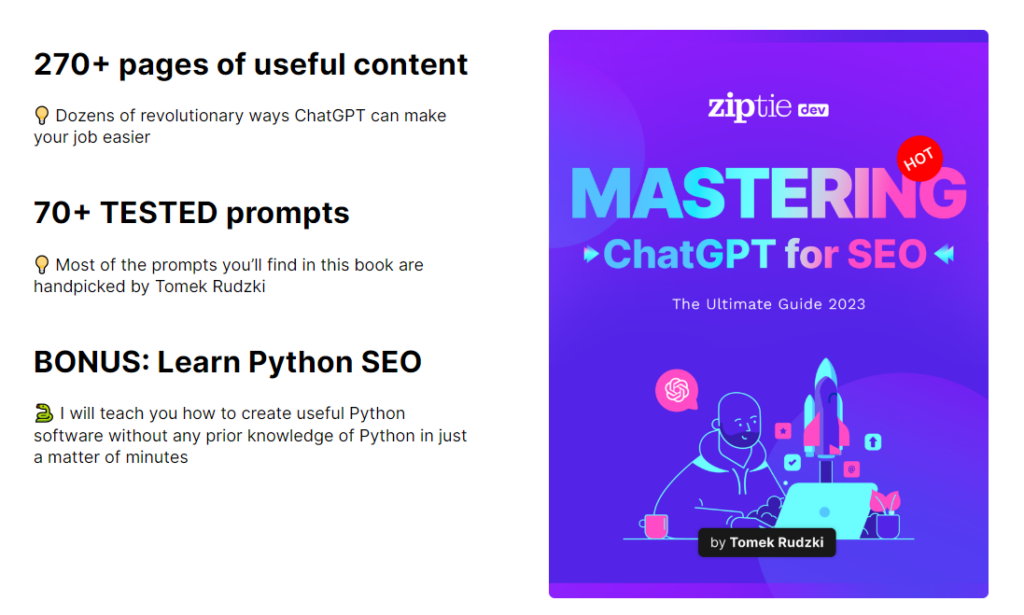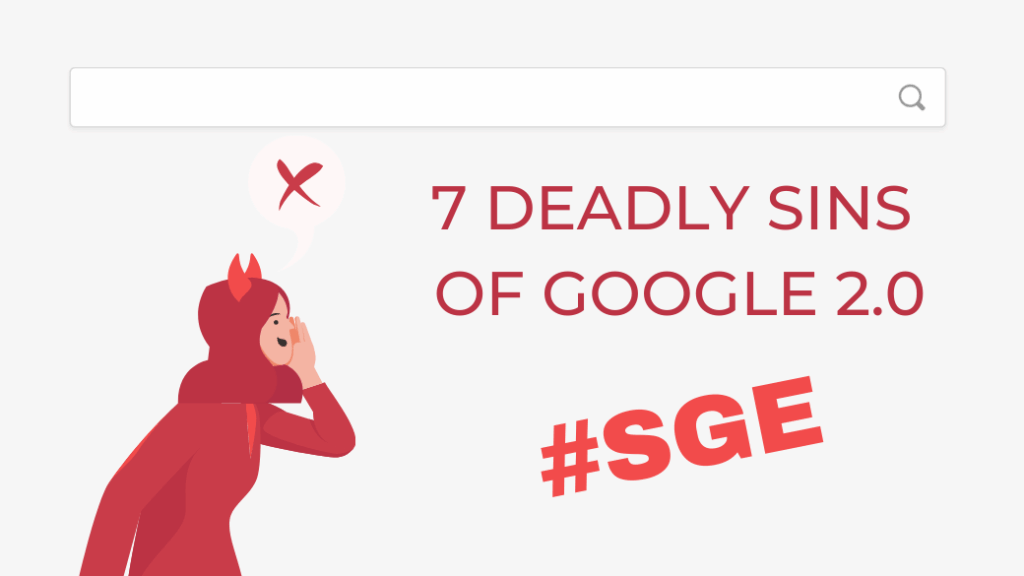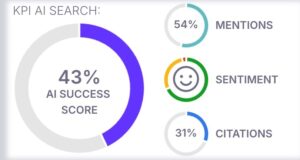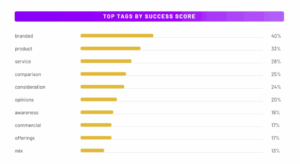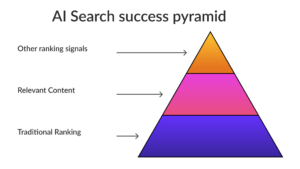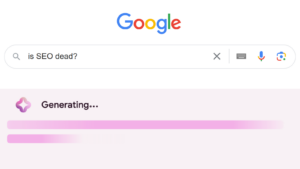Google is experimenting with the Search Generative Experience (SGE). Currently, access is limited to beta-testers. However, if it becomes global, we can undoubtedly call it the biggest change in Google’s history.
Nevertheless, it comes with significant problems. This article is an open letter highlighting the key issues and calls for fair and professional practices from Google.
A crash course on Google’s Search Generative Experience
With the new changes, Google displays a box generated by artificial intelligence at the top of its search results, as seen on the screenshot below:
You can then ask SGE follow-up questions, just like talking to a friend. If you have used ChatGPT before, you might think of it as a mix of ChatGPT and traditional Google search. Technically, Google does not use ChatGPT but its own system, but you get the idea.
It’s a massive change for two reasons.
- Firstly, it could become a “cultural” change in search, with users using more conversational queries. In your father’s search, you might type, “smartphone up to $1,000 USD with a good selfie camera.” With the SGE, more conversational queries like, “I want to buy a good smartphone up to $1,000 USD, but I only care about the selfie camera, not the main camera quality,” will become the new norm.
- Secondly, since the SGE box is shown at the top spot, it poses a huge challenge for businesses trying to acquire clients from Google.
If you want to read more about SGE, you can refer to my article 10 things you should know about Google’s Search Generative Experience.
Now, let’s move on to the promised list of the 7 deadly sins of SGE
Hold your horses
Hold your horses, as there are several issues that need to be addressed.
SGE, with its current issues, poses a huge risk for fair information distribution. It can spread misinformation or conflate facts with personal opinions, which can have serious consequences on buyer decisions and even political choices. On top of that, Google is not fair with the original sources of information. Shame on you, Google!
It is crucial for Google to address these issues to maintain user trust and provide accurate information.
Let’s delve into the specific problems and expectations.
#1 Problems with source attribution
I have noticed many instances where Google presents summaries on various topics without properly attributing the sources.
This lack of attribution is unfair to content creators who deserve recognition for their work. For instance, Google does not show attribution in the case of an informational query like “What is JavaScript SEO?”
It is essential for Google to provide proper credit and references when using content from external sources. Failing to do so is considered unethical and should not be accepted.
#2 Plagiarism
Google’s SGE relies on content from the internet, and unfortunately, it often presents identical information. I consider this plagiarism.
Let’s consider an example: when searching for the “best way to clean white sneakers at home,” Google proposes a method using soda and vinegar. However, this method is almost identical to the one presented by Famous Footwear.
The extra layer of this problem comes from the fact that this fragment is almost fully copied from Famous Footwear, again with no attribution to the source.
To make it easier for you to spot the “differences” I compiled them in the table below:
| The text offered by Google | Original Source |
| Mix one tablespoon of hot water with one tablespoon of white vinegar and one tablespoon of baking soda | Mix one tablespoon of hot water with one tablespoon of white vinegar and one tablespoon of baking soda |
| Let the shoes air for several hours before brushing and shaking off the dried paste | Leave shoes to air for several hours before brushing and shaking off the dried paste |
The lack of originality in the information provided by Google raises concerns about plagiarism.
What we can see here is that SGE is lacking rules to make sure they do not directly duplicate the content found on the web.
Let me show you another example.
I asked Google to give me famous quotes by Jose Mourinho.
Google’s SGE took content from BrainlyQuote without even changing the order of the quotes.
It is a 1:1 plagiarism. Shame on you, Google!
To ensure ethical practices, Google should refrain from directly copying content and instead strive to provide unique and valuable insights.
#3 Displaying Outdated Information
When users search for offers or news, they expect the most up-to-date information. However, Google’s SGE sometimes displays outdated data. For instance, a query for “The Witcher 3 best price” yields an outdated lowest price.
Although the price might have been accurate in the past, it no longer reflects the current market situation.
We expect Google to give a warning like this: “The information was last updated on XXX.XX.XXXX. For the current information, refer to the sources.”
#4 Irrelevant Information
Geographical location plays a significant role in determining the relevance of information. Users expect search results to align with their location-specific needs. However, Google’s SGE sometimes displays information from different regions, which may not be applicable or useful. For example, searching for “free bets” in the USA yields results based on Nigerian information, including local currency.
To further emphasize the importance of geographical localization:
Different locations have different tax and legal systems, so you may receive advice that is totally irrelevant to your specific situation.
Local customs vary, such as the different New Year dates observed in Georgia, Israel, Russia, the Republic of Macedonia, Serbia, Montenegro, and Ukraine.
To improve the user experience, Google should consider localizing content and providing region-specific results.
#5 Issues with Product Recommendations
The mechanism behind Google’s product recommendation system is not without flaws. Users expect the “best” recommendation to be based on reliable factors, but this is not always the case.
For instance, when searching for the “best antivirus software,” Google might suggest TrendMicro Antivirus, even though it receives lower ratings than other options (3.4 vs 4.7 average!!!).
As it is not clear how the system works (it is not disclosed in the search results), the system’s reliance on recommendations or potential affiliate commissions raises concerns about biased suggestions.
It is important for Google to refine its recommendation system and prioritize the quality and relevance of suggested products.
#6 The conflation of Opinions and Facts
This one is a significant issue.
A significant challenge arises when Google’s SGE incorporates opinions and surveys as though they were established facts. The internet is filled with diverse opinions, surveys, and investigations contradicting each other.
And then, when Google paraphrases these opinions and presents them as the top search results, it can lead to misleading information.
For example, a search for “Should I buy a Tesla” presents negative opinions about Tesla’s reliability, leading the user to reconsider their decision.
Hey, if I read that Tesla has the third-world reliability score among all automakers, I would not ever consider buying a Tesla.
It is essential to remember that investigations and surveys are subjective and dependent on various factors.
Google should take precautions to differentiate between opinions and limited investigations and establish common consensus to prevent misinformation.
Now, early adopters see SGE as a nice addition, kind of experimental. Tomorrow, people will treat this as an “executive summary” and may trust it more.
This is a very risky field, as it can:
- Influence political choices
- Influence buyer choices
So we demand that Google be more fair and professional.
#7 It creates unfair competition
One concerning trend is the facilitation of market dominance by major players through Google’s SGE. When users search for specific products like audiobooks or ebooks, Google’s SGE often directs them to purchase from dominant platforms such as Audible or Amazon. This raises questions about fair competition and the influence of affiliate programs.
For instance, when I searched on Google for “Audiobook 7 Habits of Highly Effective People,” it “recommended” me to listen to it on Amazon. I noticed that Google is taking information from Amazon’s affiliate websites.
Amazon’s success and the widespread use of its partner program contribute to this dominance. However, it is worrisome that Google presents information from affiliate websites as if it were an established fact, potentially biasing search results.
We demand that Google strive to promote fair competition and provide unbiased information to users.
Wrapping up
Google’s Search Generative Experience (SGE) brings both excitement and concerns.
To maintain user trust and create a more reliable and unbiased search engine, Google needs to address these concerns. They should give proper credit, avoid copying content, provide up-to-date information, improve relevance based on location, refine product recommendations, separate opinions from facts, and promote fair competition.
Hope the article will reach people responsive to Google’s SGE. Issues mentioned in the article need to be resolved.
P.S. Grab my FREE ebook Mastering ChatGPT for SEO
Recently, I released my FREE ebook titled “Mastering ChatGPT for SEO.” It contains over 270 pages of valuable content, with most prompts handpicked by me. You can get it here. 🎉 🎉
